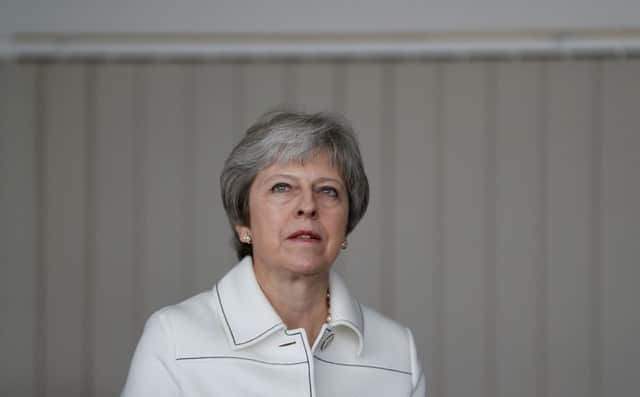Industry calls for '˜unrealistic' post Brexit customs option to be dropped


Prime Minister Theresa May has pledged to take Britain out of the EU customs union and the Government is considering two possible replacement options.
One is max fac, or maximum facilitation, in which Britain and the EU would be entirely separate customs areas but would try to use technology to reduce friction and costs at the border.
Advertisement
Hide AdAdvertisement
Hide AdMax fac has attracted extra scrutiny in the last week after Britain’s most senior tax official said that such a customs arrangement could cost businesses up to £20 billion a year.
The other is a “customs partnership”, in which Britain would cooperate with the EU more closely and collect tariffs on its behalf, so declarations are not required for goods crossing the border. Mrs May has said she wants Britain to maintain as frictionless a border as possible with the European Union.
The EEF chief executive Stephen Phipson has visited Canada to see how technology operates across the US-Canada border.
In a letter to the Business Secretary, Greg Clark, Mr Phipson states, that despite a decade of “substantial investment on both sides of the border “by two willing partners” only 100 of the most trusted Canadian companies are able to use a fast track system across the border. The vast majority of goods are still subject to normal customs checks, Mr Phipson said.
Advertisement
Hide AdAdvertisement
Hide AdMr Phipson is calling on the Government “to stop wasting public money and precious time examining an option for ideological reasons which is unrealistic and, instead, put all its collective resources into finding a solution which is workable”.
Mr Phipson, said: “UK manufacturers operate highly complex integrated supply chains with Europe, which rely on just in time delivery. Think about the Dover-Calais route. When the police have to implement Operation Stack, to deal with industrial action, there are queues for miles that bring Kent to a standstill. If we had to put every lorry through even a modest customs check the tailbacks would stretch from Dover to London and Calais to Paris.”
He added: “Much of the debate on max fac is misguided. No one doubts the technology exists: it is in place in many locations around the world. The issue is whether it is good enough to provide a frictionless border and can be implemented quickly enough to be ready for December 2020. I think that the answer to this is an overwhelming no. It may have some long term benefits, but suggesting max fac is a solution to our immediate problems is a non-starter.”
“I have been to the US and Canada border and the reality is that most Canadian SME (small and medium-sized enterprise) businesses can’t easily access the max fac arrangements.
Advertisement
Hide AdAdvertisement
Hide Ad“While some do qualify for a streamlined process, the majority are still subject to the full customs check. The Canadian process is particularly efficient and well managed, but the reality is that this is time consuming and at busy times often has long delays. Apply that to Dover and the consequences are horrendous.
“We recognise Government has a difficult job and it is not for us to tell Government what the new arrangements must be – that is a political decision.
“But that political decision has economic consequences for thousands of British businesses and real financial implications for the millions of people who work for them and the entire country who rely on their products.
“We have an absolute responsibility to highlight fundamental flaws in one of the options that still remains under serious consideration.”
Advertisement
Hide AdAdvertisement
Hide AdA UK Government spokesman said: “We are focused on making our exit from the EU, and our new trading relationship with the world, a success.
“That’s why we created the Border Planning Group, which works to ensure we identify and mitigate risks when it comes to the readiness of our ports.
“Work is ongoing to develop the options we have presented on customs, in order to meet our commitments to ensuring UK-EU trade is as frictionless as possible; avoiding a hard border between Northern Ireland and Ireland; and enabling us to establish an independent international trade policy.”